In this article, I’ll look at a couple of elements of risk-taking that poets and artists are particularly familiar with out of sheer necessity, and explore how that same thinking can be applied in a business context for leaders to make breakthroughs in the impact we have on our teams.
I’ll share three stories from my life along with the important lessons they’ve taught me, and encourage you to challenge your own thinking in order to impact on the quality of your leadership.
My name's Tucker and I'm in the business of stories. For the duration of my five-year tenure as a product marketing manager, most of which I've spent at Google, my career has been dedicated to crafting the narratives of products that shape the lives of users across the globe.
You've already read the terms, five-year tenure, business of stories, and marketer. If your eyes have yet returned from their trip to your forehead, you're now probably wondering what I could possibly have to teach you about the SaaS industry that you don't already know.
You'd be right to, because the answer to that question is nothing.
The agenda
This article will not be like others you've read, because I'm not actually here to talk to you about marketing, or my work at Google, at least, not directly. What I am here to talk to you about is one of about a dozen journals I own.
For the better part of a decade I've been filling journals with platitudes I try to convince myself pass for poetry.
As a kid, I kept this hobby mostly to myself. But when I moved from my hometown in England to Stanford for university, I finally found in this distance just enough confidence to start sharing my poems.
Workshops became open mics which became performances and by the end of my second year, I'd fallen somewhat ass-backward into the unusual curriculum where I'd spend weekdays flailing around in my classes, but on the weekends had the privilege of traveling the country to perform my work to audiences. I loved it.
From poetry to Silicon Valley
Poetry and art became as much a part of my identity during this time as the name that I bear today. But when I yanked myself from the world of metaphor manifesto to the admirably analytical and outcome obsessed culture of one of Silicon Valley's mechas at Google, I found myself suddenly immersed in a new language, the language of the challenges that leaders in our industry face, as well as those I was beginning to encounter as an emergent leader on the ground.
Now, the directors and VPS I've had the privilege of teaming up with play chess at a much different altitude than the one that I know best. But at its core, our goals in tackling our respective problems have been the same.
We want to be those leaders who can catalyze meaningful growth and change in our organizations and our products, and often in ourselves.
Leadership as a creative process
In the process of wrapping my tongue around this new language, I began to notice something that I didn't expect. Little by little, I was witnessing and experiencing the undeniable truth that the journey to outstanding leadership is a creative process of its own.
In some ways, that process isn't all so different from the one that I know from poetry. In fact, I believe that as leaders in the SaaS industry, we stand to learn a lot from the universal plight of an artist on their quest to mature.
There are moments of creative and personal risk that artists must take in order to grow. In the universe of tech, we are cursed with the privilege of being able to steer clear of the growth opportunities that artists must confront in order to become better versions of themselves.
Time and time again, this is exactly what we've proven to do. Because in an organizational setting, the hegemony of the status quo is self-sustaining. It perpetuates its own culture with or without us there, allows us to escape into the background without incurring the heart-stopping risk of taking bolder approaches to the way we lead our teams.
Whether or not we realize it, the vast majority of our organizations still reward risk-averse management styles.
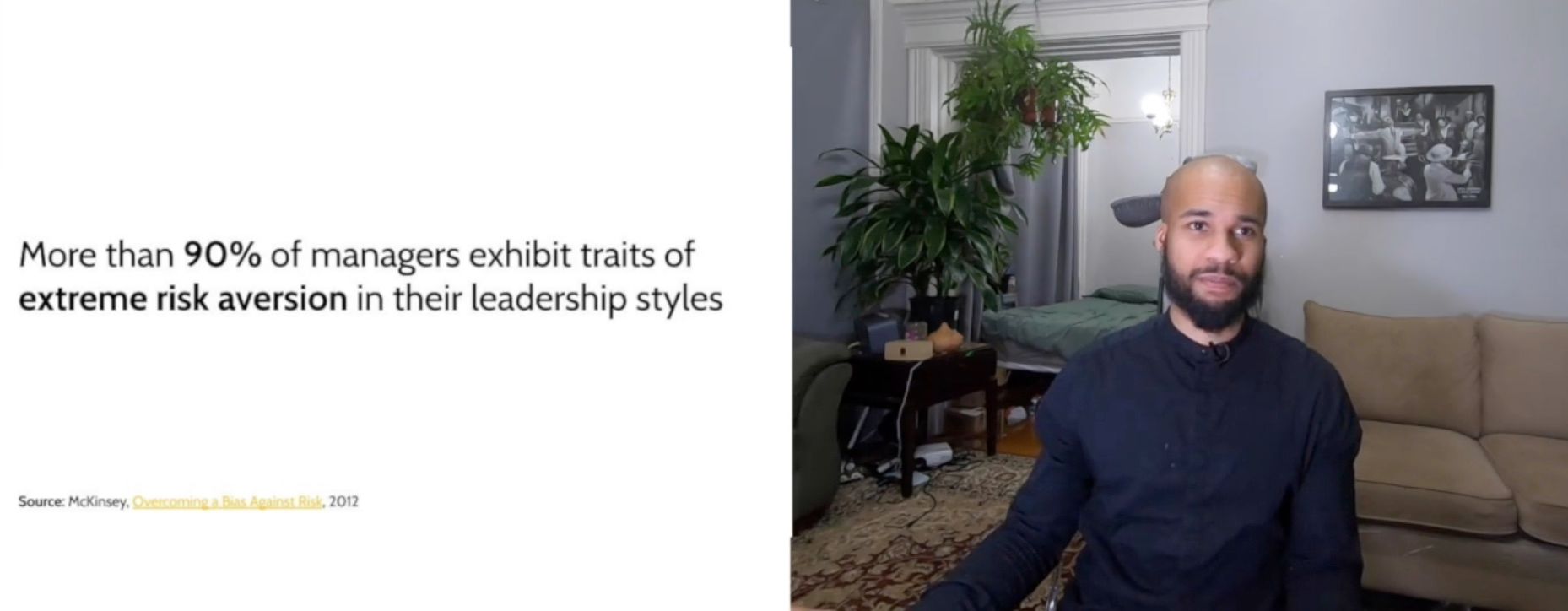
Stepping outside of our comfort zones
But if we have the audacity to think as an artist does, to hurl ourselves headfirst into the opportunities to be uncomfortable, we unlock the potential to transform our impact.
Three stories of failure
I'm going to share three stories from my journey in poetry, as well as their relevance to the thread that has brought you to this article. Ultimately I'll challenge you reading to reflect on how you might integrate similar thinking into the way you lead.
If there's anything that a mostly amateur, but sometimes professional poet knows well, it's how to fail. Here are three of my most fantastic faceplants.
I hope at least some of you gain something useful from them. If nothing else, I'm glad to at least be able to give you something to chuckle at.
Story #1: Overconfident Tucker
Now, for my first story, journey with me if you will, to the not so far away lands of my pocket, and the glowing rectangle that lives there.
The year is 2018 and I'm sitting at my work desk doing some critical market research as I scroll through Instagram, when a little red bubble catches my eye in the top right corner of the screen.
I open my DMs and see a message from a young man who looks no older than about 16. The message from a kid whose name is Michael asks for my help editing a poem. Now, I receive messages like this every couple of months and they're equal parts flattering and anxiety-inducing.
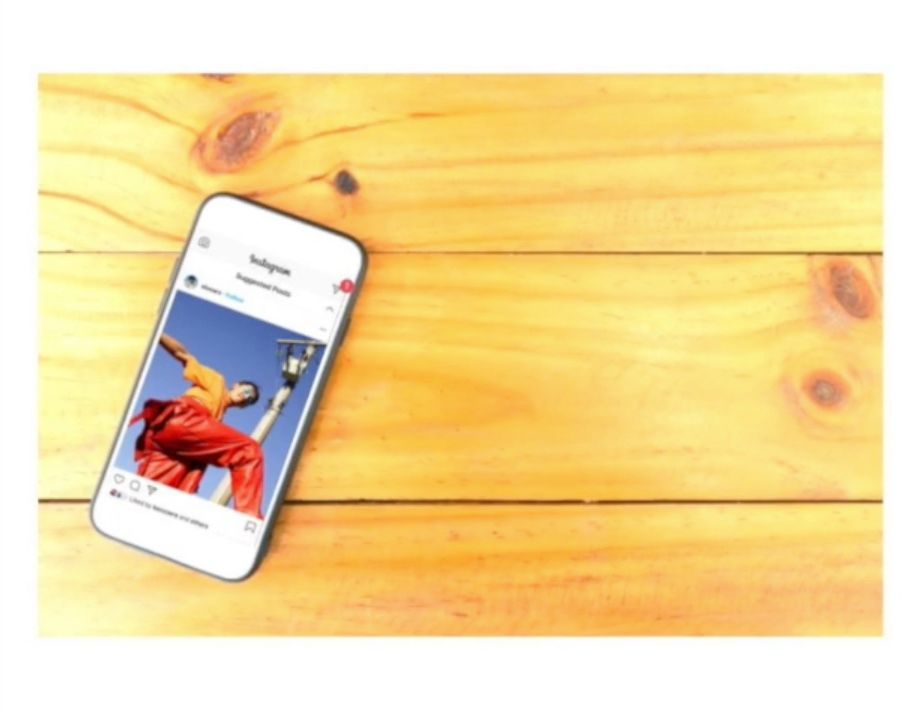
A young and precocious poet, who's already well along the path towards leaving my corny couplets in the dust and becoming an artist I could only ever dream of being sends me a message or email.
They tell me that they're planning to submit a poem to a local or school competition and they'd like some help editing it. I say these messages are flattering because they do refill the occasionally parched well of self-esteem that allows me to tell myself that my writing has value.
But they're anxiety-inducing because now I have to actually prove that to be true.
Super poet to the rescue
I mentally adorn myself in my super poet cape and unitard and prepare to save the day. He sends me the poem and I immediately get to sonnet surgery, no questions asked. It's a love poem and it's not bad by any means but by this point, I've seen enough of these competitions to have a sense of the stuff that makes the judges tick.
My red pen slashes through each line, hurling out delicate references and shoving in complex metaphors that would have made my high school English teachers roll their eyes, injecting a sense of rhythm reminiscent of the one that I cling to in my own poems, and generally turning this kid into the best version of myself that he could be.
I send back the poem with my edits and a quiet sense of pride, wish him good luck, and tell Michael to let me know how it goes. Then I wait.

Days turned into weeks and then into months. After about 60 days, I still haven't heard from the kid and I'm assuming it's because he didn't win. But I still want to know so I DM him, "Hey, haven't heard from you in a while. How'd it go?"
He sees the message almost immediately but doesn't respond right away. Then he starts typing for what feels like an eternity before finally, the words pop up on my screen. "Hey, Tucker, thanks for your help. I don't think she was too into it, man".
At first, I'm a little confused. I'm thinking does he know the judge by name, and did she give him direct feedback? I scrolled back up through our conversation just to jog my memory and upon retracing my steps, I noticed a few terms that my strong-headed mind had skipped over the first time around:
- Love poem,
- Impress her,
- Memorable gift.
The moment of realization
It takes a second for the realization to settle in, but when it does, my face drowns into my hands in shame. Michael wasn't writing a poem for a competition, he was writing it for his girlfriend.
As we talked, I learned it was for their anniversary where the two had plans to write and share poems for each other.
While hers was full of heartfelt and sincere celebrations of their dearest memories, I had pig headedly pushed Michael to replace all the personal references that might have actually meant something to his partner with showy wordplay that could have impressed a literary panel, but ultimately had nothing to do with the only judge who mattered.
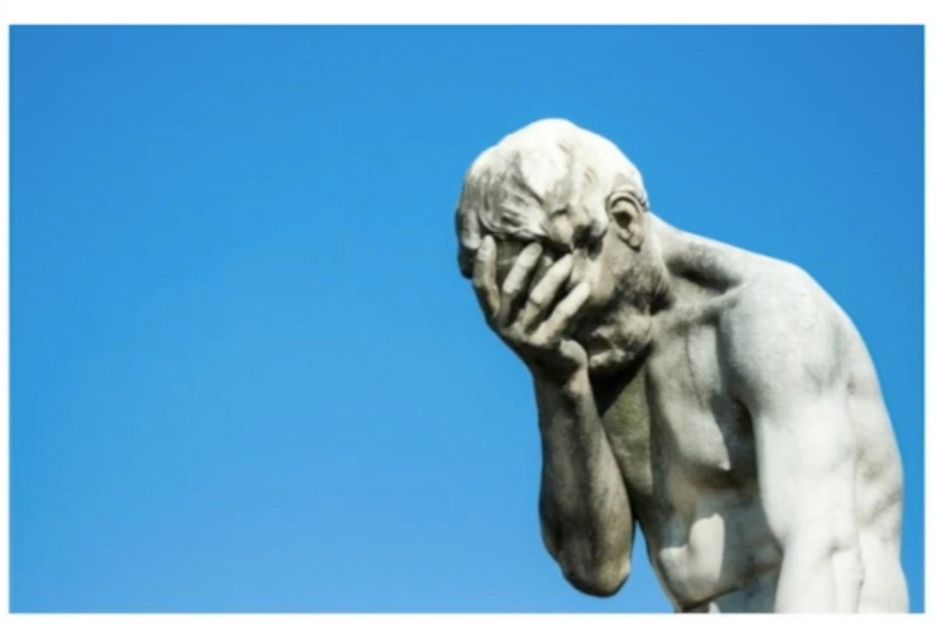
When she asked him to explain a particular line in the poem he couldn't because all that could be heard in those words was my ink forcing its stain onto his page.
The lesson: manage collaboratively
What can we learn from this? My mentee came to me for guidance and I was so anchored by my own expectations of what this was all about and how best to figuratively and literally write the story that I didn't stop for an extra two minutes to question my own confidence.
As ashamed as I am for making this mistake that the person who trusted me ultimately paid for I know I'm not alone. In fact, overconfidence in our perspectives is one of the most common traits of hubristic leaders or leaders who are ultimately destined to fail.
Over-reliance on our confidence drives leaders to force a vision of how our team should operate and develop that's based on our own egos, often without us even realizing it. It's often not because we're so deeply arrogant that we can't accept the possibility that our perspectives have limitations, but rather anxiety about our competence, that in order to be effective leaders, we must trust our perspectives, unwaveringly.
But this type of ego-based leadership results in missed opportunities to innovate through collaboration and shallow relationships with the people on our teams.
How differently would my debacle have turned out had I taken off the superhero costume and used an extra five minutes to truly understand my mentee’s motivations?
To enter my first and every conversation with this person with a belief in the possibility that just maybe the best story here was one that my pen alone was not qualified to write.
Challenge one
I turn this question back to you, is your confidence getting in the way of your ability to address all of your team's needs?
I challenge you to identify two areas in which your expertise is limited and use this acknowledgment as an opportunity to empower a member of your team to take on a greater leadership role in that area.
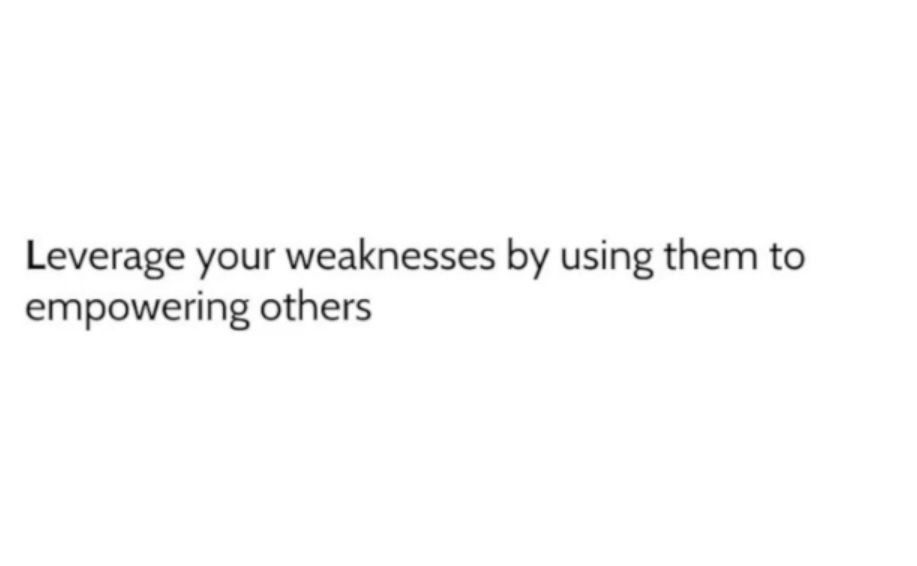
We must reject the temptation to get so attached to the story that positions us as our team's sole and uncomplex hero. When we do this, we miss out on the opportunity to write stories of more meaningful success by co-authoring them with those who count on us most.
Now, I hope you like whiplash because I'm going to move right along to my next story, which is about her.
Story #2: Kenzie
Her name is Kenzie, and for 26 years I've had the privilege of calling her my older sister, best friend, and personal hero.
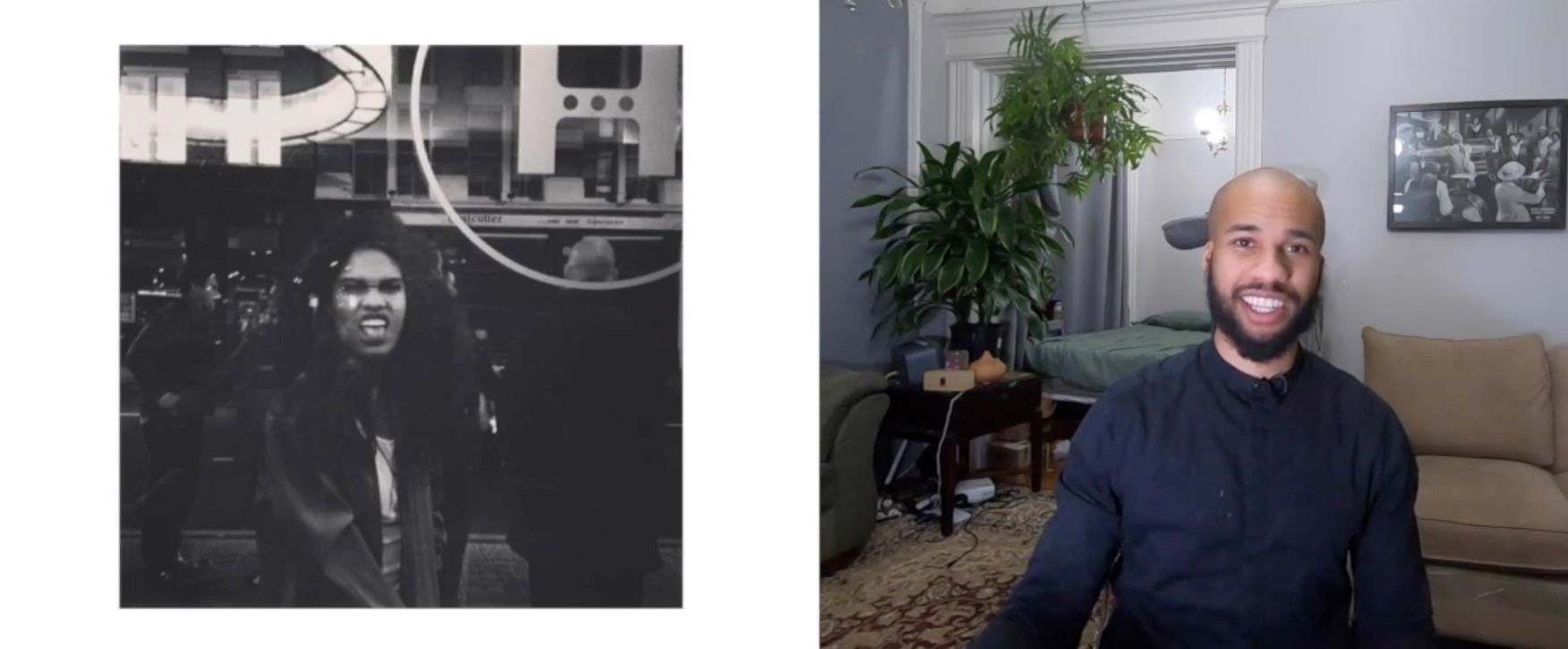
Ever since her first kitchen table karaoke show, she's been a phenomenal musician and singer. Back when I was a horrifically shy kid who couldn't be left in a room of two people or more without crying she's the person who encouraged me to find my courage in art.
Years later, I was finally sharing my work on stage. But performing to an audience terrified me. I was terrified of telling a story that would flop and I wanted poetry to be fun. So I avoided the touchy topics and stuck to safe poems.
For me, that meant funny poems or poems that I found funny and that others found tolerable. I had this one poem that was called 'an ode to the color orange', the idea was that I was offering comfort to this color that feels out of place because it doesn't rhyme with anything by describing what life is like when your name is Tucker.
Believe it or not, audiences actually love this stuff so I carved out a little safe zone for myself on the stage. Over time, I started experimenting, finding out what buttons I could press in my humor that relieve the cheers and applause louder than ever before at the end of each show.
I keep playing with these artificial sweeteners in my work like I was on a quest to concoct a cocktail of snaps and laughter that will leave my audience drunk on joy and good feelings.
The bookings kept rolling in, the view counts stretching their fingertips towards the sky. By some metrics, everything was great.
Lockdown strikes
Then, in February of 2020, things changed for reasons I'm sure I don't need to reiterate to you. What went from being a legend 10s of 1000s of miles away in a city that rarely crossed my mind became a rumor, a hallway whisper coworkers traded in between meetings in exchange for mouths agape.
Then, out of nowhere, it was here and it was keeping us at home away from the people whom we love. On the day the lockdown was announced here in California I sat at the desk that I write from and all those stories I had shoved out of view for being too uncomfortable to look in the eye came crawling back towards my fingertips.
What was I afraid of?
I asked myself if I had known that this blessed opportunity to create and share stories with the people who I love would be stripped so indefinitely from my hands, what would I have found the courage to write back when I was lucky enough to have a stage that had room for my voice?
That night, I turned to my pen and my journal for an answer. It took some digging, but we found it. The answer was about Kenzie, specifically, it was about a day three years ago when she brought home her diagnosis.
After months of specialist consultation, cardiologists diagnosed her with a rare form of cardiomyopathy. It's a degenerative heart disease in which the heart is so muscular that it has to work twice as hard to squeeze blood through its constricted valves. In doing this work, the heart becomes more muscular, and the valves more constricted.
It is a disease in which the heart’s will to live ultimately kills it. But ever since she came home with this news, I've been vacationing in the past where she is still invincible.
Every conversation I had with her became one in which I danced around any word that would remind me of the slow wilting of her body. Though was on my mind constantly, I never found the courage to write that story. Neither in the form of the medium that I knew best nor in the conversations I needed to have with Kenzie to understand how to be the best support to her in the time we have left.
So here I find myself today, separated from my sister by COVID and continent with no reunion in sight I'm now paying the price of my unwillingness to write the difficult story of this new relationship with my sister.
The lesson: invite difficult conversations
But again, my reluctance is not unique. We are living through an extraordinary chapter in human history as the world awakens to a new consciousness of what it means to treat others with compassion our identities as leaders are being called upon to evolve.
You must go further than ever before to make our teams feel like they belong and our teams themselves recognize this. It turns out that our willingness to engage with teams’ personal lives is the most powerful contributor to the sense of belonging, greater even than when people receive positive professional feedback.
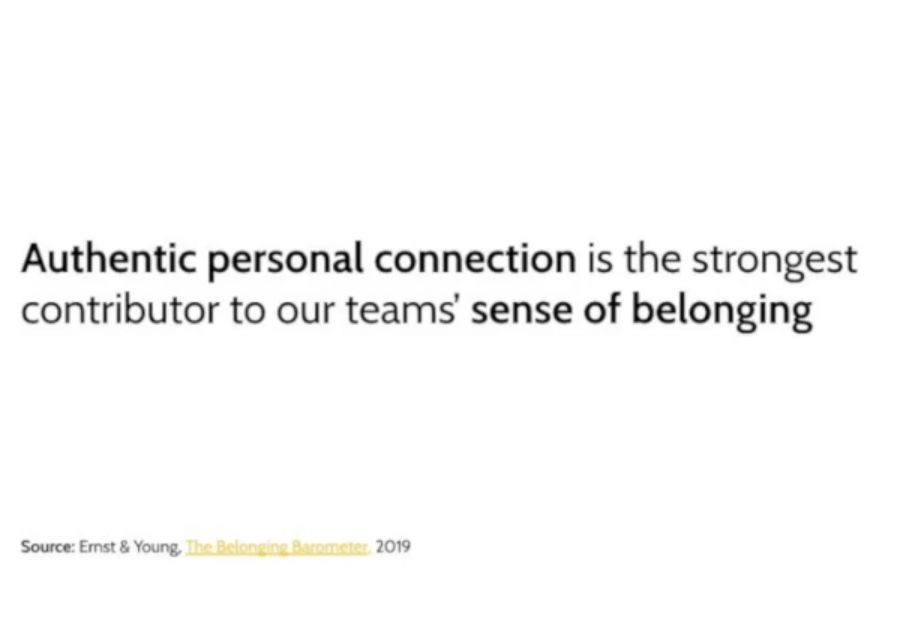
But the inconvenient reality is that championing meaningful personal connection amidst a chapter of radical socio-cultural change, political polarisation, and civil unrest often requires us to write some difficult stories.
Stories we don't have an outline for, where we fear the conflicts and failures our protagonist may encounter along their journey or stories that as in the case of my relationship with my sister, may have an ending that terrifies us.
We don't often realize it but these stories which for us, as leaders, come in the form of what conversations we choose to have or avoid every day are ones we have a natural inclination to step away from.
Frankly, avoidance is the luxury of the author, of the leader.
But what I learned through the mistakes I've made in my relationship with my sister, is that if we choose not to write these stories ourselves, they will still be written, but instead by our avoidance.
Challenge two
I challenge you all to ask yourself this question. What are the stories you're avoiding?
Are you taking it upon yourself to learn enough about the personal experiences of your teams and interacting with people in the context of that knowledge? Or are you avoiding understanding elements of your team's experiences when those stories feel uncomfortable to write?
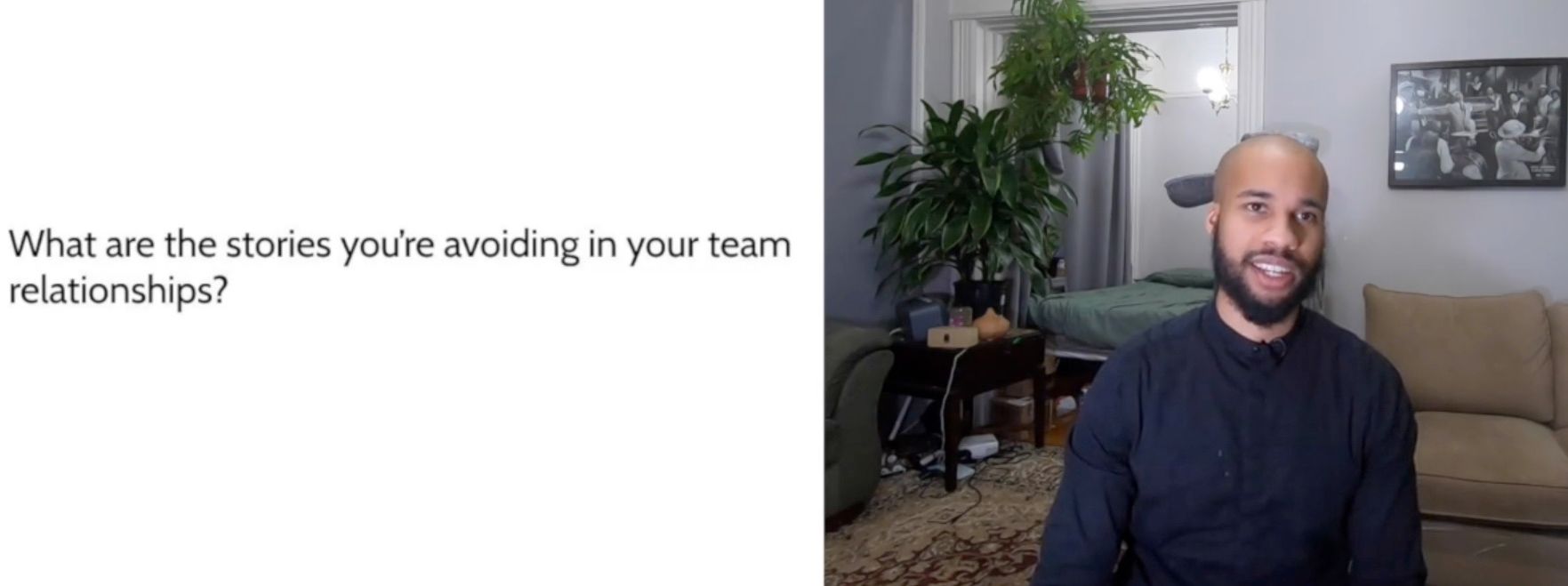
As we dare to build fully authentic conversations with our teams, the conversations we will encounter will reveal that providing effective support to those who live different experiences to the ones we know is not always simple, or intuitive, or comfortable.
There will be mistakes we make along the way as should be the case anytime we journey into the unfamiliar, but the most powerful acts of leadership can be found in our willingness to write, not the stories we know best but in writing the stories that will make us better.
Now, I'm going to break your necks one more time for my third and final story.
Story #3: The roommate
I'd like to take you back to my third year in university. I was neck deep into the life of a touring poet, writing lots, showering little, and experiencing the unique joy of torturing my parents with threats that I might one day try to do poetry as a career.
But one semester, I had this roommate and this was the kind of guy who I'm pretty sure had his own stock portfolio around the time in his life when I was just learning that washing your face with hand soap only makes pre-teen acne worse.
He's the kind of guy who likely had his eyes on Y Combinator by the second week of our first year. You can probably imagine just how highly he regarded the guy who spends his free time writing flowery words about jasmine tea and shit.
But on his birthday, I wanted to give him something meaningful, something small, but that I could do well, maybe to earn his validation.
Happy birthday to you
I let down my facade of pretending to be as interested in Wall Street as he was and I put myself out there a little bit. I scribbled him this short poem on a scrap of notebook paper, wrote Happy Birthday at the end and put it at his desk.
When he comes back, I not so discreetly watch him out of the corner of my eye as he sits down, rolls his chair up to his desk and cranes his neck in amusement at the chicken scratch before his eyes.
Waiting with bated breath, pathetically desperate for his reaction or some validation. As he reads it, I see a smile creep across his face, and I can't help but be into myself. But then his smile begins to tremble and his face twists up a little. Then he erupts in laughter.
Just as quickly as my heart had swelled, it pops, deflates and just lays there this wounded heap of humiliation in my chest. I'll never forget, as his laughter subsides, he looks at me and he says, "You know what, man, as soon as you accept that a few cheesy words are useless, unless you've actually done anything, you might actually have a shot at making it someday".
A sticking point
Two things happened in that moment. The first is that I sincerely considered encouraging him to take that spectacular backhand of his to tennis tryouts. The second thing was that his words stuck.
I couldn't see it back then but in time, something wretched bloomed inside my head that said, 'Why risk my dignity through a craft that forces me to be vulnerable, when the things you say are ultimately worthless?'. So I ended my love affair with creative writing.
I switched my major from English to international relations. I went through that Stanford right of passage of starting a company that was destined to fail and did very swiftly. Ultimately, after graduating, I took a behind the scenes little FaceTime job, because why risk embarrassing myself with heartfelt language in a world that values the things you do, but has no real use for the mere words you share?
The run in
Then one day, a few years after this charming incident, I'm out in the city getting coffee and who do I run into but my old roommate, Mr. mini Richard Branson. By now I'm sure he's halfway towards world domination and the quality of his suit says about as much so when we lock eyes, I meekly nod at him and go back to nursing my jasmine tea.
But then he approaches me, and before I know it I'm being asphyxiated in this bear hug that damn near lifts me off the ground. He was talking to me, but I'm so dazed that for a few seconds, I don't hear a thing.
I tune out just about everything until I catch him say the words, "So yeah, I'm just really grateful for what you gave me". I'm super confused because I haven't seen this dude since senior year and have tried desperately to stamp out any recollection of the epic and private humiliation we shared those few years ago.
We talk a little more and it turns out that after college he lost his father and this sends him into a depression that for a while, by his telling of it, he didn't plan to return from. But as he was cleaning out his room and preparing to give away his belongings, he found, and I quote, 'that stupid Haiku you wrote me'.
It wasn't a haiku, but that's okay. For whatever reason, reading it back to himself a couple of times was enough to convince him that maybe it was worth waiting until tomorrow to see what the next day had in store. This is when the irony really started to sink in.
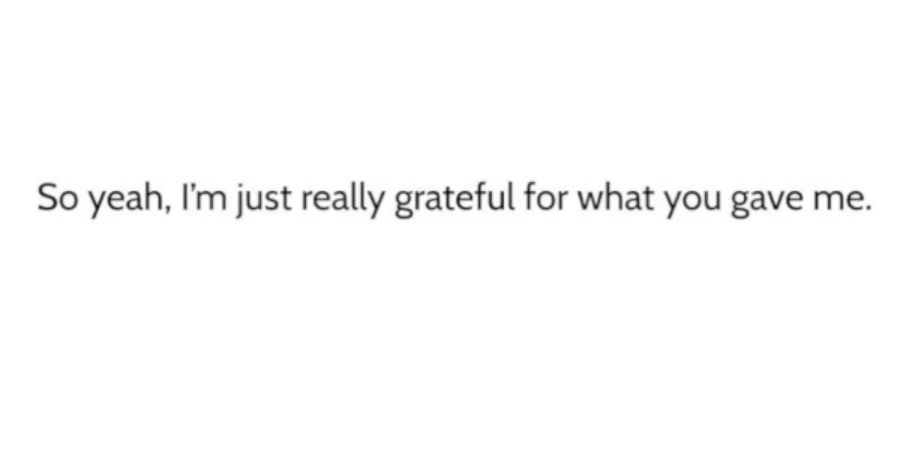
The lesson: own your vulnerabilities
The strongest critic I knew of the power of words had shaped five years of my own development with a single snide remark. For that same person, against his every desire, bearing witness to vulnerability through the words of another, just might have helped him when he needed it most.
Why does any of this matter? Well, time and time again, research has shown us that leaders stay in relms that allow us to avoid moments of vulnerability. We assume that our ability to prove ourselves as voices worth rallying behind hinges on those demonstrations of war like strength, an anomalous fortitude that makes us more godlike than human.
But this isn't actually how trust is built at all. Research shows us that one of the most demonstrably effective ways to build psychological safety, the single strongest predictor of a high performing team is to embrace and model vulnerability in our own leadership styles.
This doesn't mean spilling out our most unresolved torment in every one on one we have. Modelling vulnerability effectively means showing scars versus showing wounds. But our teams need to see us acknowledge the cracks in our courage to be able to see themselves in us.
There's a pervasive myth that vulnerability is valuable because she who offers it achieves some sort of catharsis. This may be true in a therapeutic setting but when a leader offers vulnerability to the people who count on them, the person who benefits most is not the leader. It is the witness of their vulnerability.
The person who gains that perspective that competence and conviction are not always a skin we are born into but a muscle sculpted through years of patience, tears, and the accumulation of scar tissue. In building relationships with our teams it's essential that we lean into opportunities to connect by owning and offering up our fallibility.
Challenge three
My third and final challenge for you is to ask yourselves, what pieces of yourself - not as the leader, but as the person - have you denied your team's access to in your relationships with them?
Does your team understand the struggles you've encountered on your path to your current stature? The professional flaws you're still wrestling your way out of? Or are these truths that you smother into silence?
Whether a past inadequacy or present insecurity, I challenge you to acknowledge just one of these vulnerabilities and your relationships with those who count on you.
In doing so, you provide space for your reports to stare their own insecurities in the face on their quest to step into bigger and bigger shoes, and ultimately, allow them to conquer them, rather than deny their existence until they are consumed by their own flaws from the inside out.
Summary
In this article, I've looked into three different stories of failure through poetry, and how we can learn from those failures to be better leaders by managing collaboratively, inviting difficult conversation, and owning our vulnerabilities.
What's the ultimate call to action, the creative risk that we can lean into?
What little I've learned in my time writing and performing stories through poetry is that the process of creative growth is little more than a fistful of moments of self discovery, served up in the form of extreme discomfort.
Artists are intimately familiar with these moments because to grow as an artist is to view risk taking as nourishment, to sniff out every corner of your craft, where your character can hide in comfort, and to smoke it out by sheer force of will.
At the risk of being trite I want to invite you reading to have the courage to do what causes you fear, to confront yourself and the stories you co-author with your teams, even when doing so makes your heart pound.
The most profound and impactful stories are those we've known for years, but have been too afraid to write. This right here is a fine page to start those stories on.
With little courage, and a willingness to arm wrestle your pen in a new direction, it will.
Thank you



